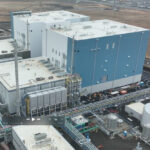A Growing Concern: The Energy-Environment Nexus
The correlation between energy consumption and environmental degradation is a pressing concern, with the world’s appetite for energy showing no signs of slowing down. In 2020, the global energy demand reached 14,000 terawatt-hours (TWh), with the International Energy Agency (IEA) predicting a 30% increase by 2040.
Energy Efficiency: The Key to a Sustainable Future
Energy efficiency is gaining recognition as a crucial aspect of mitigating the energy-environment nexus. According to the IEA, energy efficiency improvements can save up to 3,500 million metric tons of carbon dioxide (CO2) emissions annually, which is equivalent to taking over 700 million cars off the road.
Reducing Emissions: The Carbon Footprint of Energy Efficiency
The reduction of greenhouse gas emissions is a critical outcome of energy efficiency measures. In the United States, for example, the country’s energy efficiency efforts helped reduce CO2 emissions from the power sector by over 20% between 2005 and 2020.
Energy Efficiency Trends: A Shift Towards Low-Carbon Technologies
The rapid adoption of low-carbon technologies is driving the transition towards a more sustainable energy landscape. Solar and wind power, in particular, have experienced significant growth in recent years, with both technologies accounting for over 10% of global power generation in 2020.
Water Conservation: Another Critical Aspect of Energy Efficiency
Water conservation is another vital aspect of energy efficiency, as the production, transmission, and consumption of energy require significant amounts of water. In the United States, for instance, the energy sector accounts for approximately 40% of the country’s freshwater withdrawal.
Water-Energy Nexus: The Interconnected Nature of Energy and Water Resources
The water-energy nexus underscores the importance of considering energy efficiency measures in conjunction with water conservation strategies. Water-efficient technologies, such as those used in cooling systems, can significantly reduce both energy consumption and water use.
Job Creation and Economic Benefits: The Economic Value of Energy Efficiency
While energy efficiency is often framed as a environmental issue, it also has significant economic benefits. The energy efficiency industry is projected to generate over $1 trillion in annual revenue by 2050, creating millions of jobs and stimulating local economies.
Workforce Development and Training: Building a Sustainable Energy Workforce
Developing a skilled workforce to support the energy efficiency sector is critical to its long-term success. Governments and industry stakeholders must invest in workforce development and training initiatives to ensure a steady supply of qualified professionals.
Conclusions and Recommendations
In conclusion, energy efficiency plays a vital role in mitigating the energy-environment nexus, reducing emissions, conserving water, and promoting economic growth. To ensure a sustainable future, we must prioritize energy efficiency efforts, invest in low-carbon technologies, and support workforce development initiatives.
FAQs
Q: What is the impact of energy efficiency on the environment?
A: Energy efficiency efforts can reduce greenhouse gas emissions by up to 3,500 million metric tons of CO2 annually.
Q: How does energy efficiency impact water conservation?
A: Energy efficiency measures, such as those used in cooling systems, can reduce both energy consumption and water use.
Q: What are the economic benefits of energy efficiency?
A: The energy efficiency industry is projected to generate over $1 trillion in annual revenue by 2050, creating millions of jobs and stimulating local economies.
Q: How can we support workforce development for the energy efficiency sector?
A: Governments and industry stakeholders must invest in workforce development and training initiatives to ensure a steady supply of qualified professionals.







